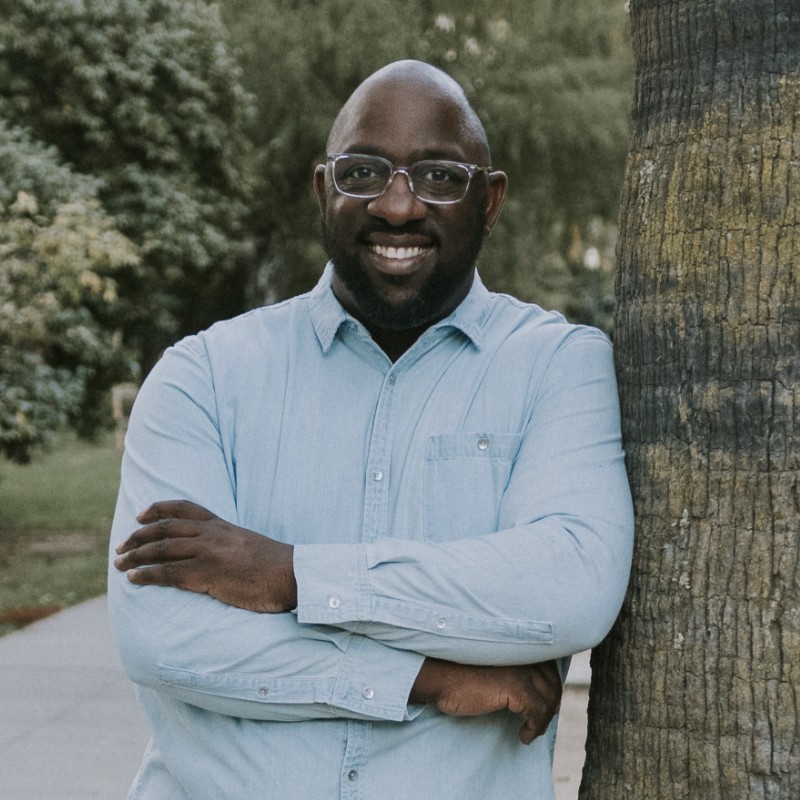
Dominique Beaumonté, BA ’03 (ethnic studies)
Director of Communications and Development, Umoja Community Education Foundation, Inc.
Part of the Daily Emerald "Ducks Take Flight" feature
Written by Lizzy Lee, UO student reporter
Dominique Beaumonté earned a bachelor's degree in ethnic studies in 2003. During his undergraduate program, he found his passion for communications and higher education leadership. Today, he is the director of communication and development at Umoja Community Education Foundation. Dominique also serves on the UOAA Board of Directors.
What skills or key takeaways did you gain from your time at the UO that you now implement in your role at Umoja Community?
I was a member of the National Association of Black Journalists and really was able to develop my skills for communications, writing, graphic design, reporting, media management and all of those things. On the technical side, I was able to really carry some of what I learned in my undergraduate work into the current phase of my career. I think the other piece is just a deep commitment to diversity and ensuring that the places, especially where I'm working, are diverse and tell diverse stories about the people and places where people come from.
What are your tips for effective networking, and how can UO students build a professional network early on?
To me, networking is two things. First is intentionally being visible and going places. Second is knowing who you are and where you want to go. When somebody talks to me about what they’re passionate about, even if it's in the grocery store or at church, I’m going to talk about how passionate I am about student development and how much I love working in communications and graphic design. So, position yourself to be able to tell your story, who you are and what you're passionate about. Those are key to networking.
What advice would you give to students of color and first-generation students who are trying to navigate higher education?
I was a first-generation college student. I was homeless the summer before I got to the University of Oregon. For me, I quickly learned that I needed to take advantage of every resource that was available to me with a spirit of gratitude and tenacity. What that meant was when I learned about a resource or when I came in contact with somebody that had a resource to help me, I followed that diligently and effectively communicated what my needs were.
Getting involved is very important, because it positions you to meet new people and to feel like you have community and support both academically and professionally. You really have to do everything in your power to create a community there, especially if you're a person of color or first generation. I was successful as a result of a community that I built that really held me accountable. I think that's important for students of color and first-generation students.
How can students avoid or work through burnout?
I think it's really important to always know why you are doing something. If you don't know why you do what you do, then you will always be burnt out because you will always be under the scrutiny of other people, their schedule and their expectations of you. I'm passionate about the work that I do as a communications director, and nobody has to prompt me to do what I do. That also means that when I take a break, it's really so that I can continue to create, and operate as a creative on that same level. You have to create a definition of balance that incorporates the things that you're passionate about, the things you do for a living and the people you care about that surround you.
I think burnout is kind of like how you see your car. The longer and the more that you drive it, the more likely you are to need to service it. If you don't service the car, then eventually, it's not going to work in the way that you need it to work. And so, the work of self-care, creating space and being able to enjoy life are really important to professional success and growth.

